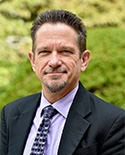By Rev. Kirk Bingaman, PhD
In recent years, I have been focusing on neuroscientific findings, which reveal that far from being fixed and unchanging, the human brain has a remarkable capacity for growth and change across one’s entire lifespan. Neuroscientists have only scratched the surface in terms of what is known about the human brain, which leads me back to the words of the psalmist: we humans are wonderfully and fearfully made (Psalm 139:14). The research holds great promise for helping us find ways to live abundantly and less anxiously, even in these challenging and uncertain times.
Being Good to your Brain
In a landmark study, the American neuroscientist, Andrew Newberg, focused on particular regions of the brain as he studied a group of Franciscan nuns doing the Christian Centering Prayer every day for fifteen years. What he found by way of periodic brain-imaging scans, which has been corroborated by subsequent research, was that having a regular spiritual practice (e.g., contemplative prayer) significantly lowers activity in the stress region of the brain while increasing activity in other regions that support health and well-being.
Move Beyond the Intellectual
Jesus, in the Sermon on the Mount, encourages us not to be anxious or “stressed” about tomorrow, to remain centered in the present moment of today (Matthew 6:34). And while we would all agree that his teaching is foundational for the spiritual life, there is not always clarity about how to put it into practice. We “get it” intellectually; in other words, we know full well it would do us good to be less anxious, but beyond an intellectual grasp of Jesus’ teaching there is less understanding of how to make it a practical reality.
Anxiety and Guilt
Sometimes I will hear congregants say that they feel guilty for not having enough faith in God to “overcome” their anxiety. Unfortunately, this “self-talk” and mental chatter becomes something of a “double whammy:” along with feeling anxious, they now feel anxious and guilty about feeling anxious. I am coming to see that it is not a matter of ignoring Jesus’ teaching, but rather a lack of clarity about how to put his words into practice.
A Little Time – A Big Difference
The recent findings of contemplative neuroscience reveal that a regular spiritual practice of contemplative prayer/meditation, even for ten or fifteen minutes a day, can make a difference in how we manage our stress, regulate our anxious feelings about the future, and ultimately live more joyfully and abundantly in the gift of today. In the words of the psalmist, “Be still, and know that I am God” (Psalm 46).

Rev. Bingaman, PhD, LMHC, is Associate Professor of Pastoral Care and Counseling in the Graduate School of Religion & Religious Education at Fordham University. An ordained Presbyterian minister, he is a Fellow with the American Association of Pastoral Counselors. Dr. Bingaman holds a PhD in Psychology and Theology from the Graduate Theological Union in Berkeley, CA and a Master of Divinity from Princeton Theological Seminary. His latest book is Pastoral and Spiritual Care in a Digital Age: The Future is Now. Dr. Bingaman counsels teens, adults and couples at our Mineola, Long Island site.
.
.


